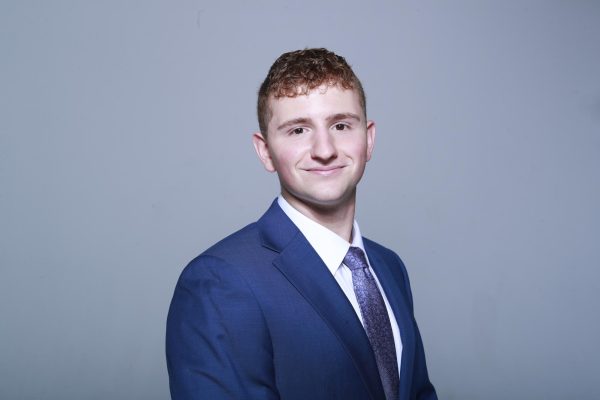Michael Walsh and Tate Farinacci are embarking on a journey to revisit and illuminate some of the most significant stories that eluded the coverage of The Carroll News during the summer months. In this edition, we delve into pivotal events within the sphere of diplomacy and politics.
Ukraine, Russia and Wagner… oh my!
First, we saw the collapse of the Black Sea Grain Deal. The deal, negotiated in July 2022 among Turkey, the UN and Russia, aimed to facilitate the export of Ukraine’s grain. Turkey was involved due to its control over the maritime traffic in the Bosphorus straits.
The deal allowed for commercial food and fertilizer exports from three Ukrainian Black Sea ports, with Ukrainian vessels guiding cargo ships safely through mined areas. Initially, the deal succeeded with 33 million tonnes of grain leaving Ukraine’s ports in the year to July, benefitting low- and middle-income countries. The World Food Programme purchased Ukrainian grain for countries like Afghanistan, Ethiopia, Somalia and Sudan, stabilizing grain prices. However, issues arose as Russia slowed down inspections, leading to a significant decline in food exports through the initiative. By May, Russia ended the deal.
The breakdown resulted from Russia’s belief that Western countries were not honoring the deal’s second part which allowed for greater Russian agricultural exports. Russia sought sanctions relief, legal assurances for insuring Russian ships and other demands like resuming supplies, pipelines and asset unblocking. Blame is conteste, with the West claiming Putin disregarded the deal due to Ukraine’s gains while the UN made efforts to meet Putin’s demands.
However, amidst this whirlwind of information, it’s crucial to take a closer look at the Ukrainian counteroffensive. Spearheaded by Kyiv and President Zelensky, the initial ambition was to advance deep into Russian territory, securing substantial gains. Regrettably, as we approach the three-month mark, this counteroffensive appears to have stumbled, casting doubts on its ability to achieve the strategic objective of severing Russia’s land bridge to Crimea. In hindsight, The Institute for the Study of War’s assessment from July, which cautioned against expecting a swift and straightforward operation, now appears prescient.
Yevgeny Prigozhin, a former restaurateur who later became the founder of the notorious Wagner group and a prominent figure within President Putin’s inner circle, played a significant role in the invasion of Ukraine. Wagner received extensive support from the Russian military and enlisted inmate soldiers.
However, on June 23, 2023, Prigozhin took an unexpected turn and led an uprising against the Kremlin. Following a period of exile in Belarus, he made a dramatic return to Russia on Aug. 24. Tragically, his plane was involved in a “mysterious” accident that claimed his life, along with a dozen others. The rise and fall of Prigozhin serve as a stark reminder of President Putin’s penchant for retribution and unyielding desire for absolute control.
ECOWAS and peace in the east (of Africa)
In West Africa, chronically coup and war-torn, a new conflict has developed between two factions of the same alliance which once was hoped to bring unity and progress to Western Africa- ECOWAS. For their part, the Economic Community of West African States was founded in 1975 by what was, and this is, its largest member, Nigeria.
Their official website–About ECOWAS–lists the aim of the organization which “is to promote cooperation and integration, leading to the establishment of an economic union in West Africa to raise the living standards of its peoples”. Until now, they have been incredibly successful, as the organization’s member states have doubled in the last 20 years and all have seen somewhat consistent quality of life improvements, though as we will see, this has not come without other failures engulfing ECOWAS.
The coups in Mali, Guinea and Burkina Faso – The largest cracks in the alliance came from May 2021 to Sept. 2022 in Mali, Guinea and Burkina Faso, of which all had coups within a short span of one and a half years. In Mali, an interim government that established the first civilian-only government in years was ousted by the two deputies who had been excluded from government, making civilian rule a possibility. In response, according to What next for Mali after a second coup within a year? by Al-Jazeera, the former president was, and still is, detained and the key deputies responsible for the coups.
In Guinea, the Elite Guinea army unit says it has toppled the president and states a similar dilemma. Elite special forces stepped in to oust President Alpha Conde for unilaterally extending the constitution of the nation to give himself an extra term in office.
Though many inside and outside the nation were horrified by this disrespect of democracy from the president, the nation’s special forces under Mamady Doumbouya committed the same crime in order to right Conde’s wrong. No elections have yet been held, in another violation of their constitution.
Finally, in Burkina Faso, a direct neighbor of Niger, a coup was led by the COBRA, an anti-terror specialist force.
Due to the inability of the previous government to stop terrorism within the nation, the military stepped in to take complete control of the government and the war, though the hardline tactics of the military have led to human rights violations.
With the addition of Niger, four of the members of ECOWAS have turned in two years, and, with limited attempts to reverse these coups in the past, ECOWAS seems to be putting its foot down now as they wish to stop the instability within their alliance from spreading further.
So, as the Niger crisis enters its sixth week, it seems that despite the rhetoric, little has happened in the way of a capitulation of the coup forces within Niger or in any of the other couped nations and, as such, this may be the continuing state of affairs with a line, albeit a weak one, being drawn in the sand.
Elections and Executions in Ecuador
The Ecuadorian elections – Ecuador’s first round of elections officially ended on Aug. 21, as the MCRP (Movement of the Continuing Revolution Party) candidate Luisa Gonzalez and the NDC (National Democratic Acton) candidate Daniel Noboa both received the highest margin of votes under 50 percent, resulting in a run-off which will be held on Oct. 15.
Two candidates killed – Despite the rigorous nature of the election, it was marked by attacks on democracy from within and without. Tara John and Marla Soto writing for CNN state that Fernando Villavicencio, a left-wing critic of the MCRP and its former leader Corea, who is living in exile despite an absentia guilty plea for bribery.
Despite this, he was still incredibly popular and Gonzalez was and is seen as his successor, backing her from far-off Belgium. Though conspiracy theorists might link the two and claim Villavicencio may have been met with a hit by his rival abroad, his anti-gang stances seemed to have garnered him enemies in the crime syndicates of Ecuador and, as such, this is the mainstream theory.
Only days later on Aug. 15, a local anti-gang party boss was killed in the maritime north of Ecuador, which besides destabilizing politics, left the center right and solid left incumbent candidates of Villavicencio and Gonzalez as the only real candidates left.
What is Ecuador’s future? – In the end, democracy still lives in a way, as the elections still went on and, despite candidates sadly being missing, the Ecuadorian people will still go to the polls to decide who their executive will be.
This though will exist parallel to the cartels and criminals of Ecuador and, until a candidate survives to act against them, these attacks will be ingrained in Ecuadorian politics.
This article provides a comprehensive and thought-provoking overview of key international events and political developments that have unfolded during the summer months. From the collapse of the Black Sea Grain Deal and the Ukrainian counteroffensive to the internal conflicts within ECOWAS and the Ecuadorian elections marked by violence, the authors shed light on critical issues that often go underreported.
Despite the challenges and uncertainties depicted throughout these stories, the resilience of democracy and the determination of nations to navigate complex geopolitical landscapes remain evident. This article serves as a reminder of the ever-evolving nature of global politics and the enduring pursuit of stability and progress amidst adversity




